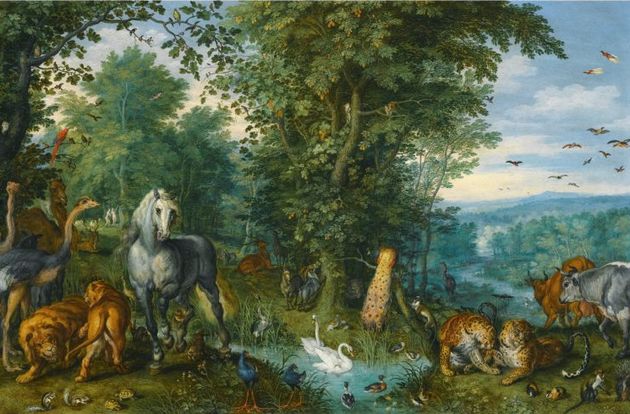Embodied and placed
Are we simply critiquing the environmental debates being played out in public, or is there a solid biblical agenda for engagement?
15 JULY 2019 · 19:10 CET

Do we have a compelling theology of environmental responsibility?
This was the question put to me a few months ago, and since then it’s become all the more pertinent as major protests are being made for urgent action on biodiversity loss, climate change, plastics pollution and more.
Are we simply critiquing the environmental debates being played out in public, or is there a solid biblical agenda for engagement? And how might that agenda integrate with the broader biblical mandates for evangelism and social engagement?
We’ve been grappling with these questions in recent weeks alongside our SAGE programme participants, as they have researched into food and the environment from a biblical perspective.
As I reflect on these questions, two concepts are helping to enrich my own understanding: God has designed human beings to be first embodied and then placed.
To be human is to have a human body; our being is a physical one, and while we have a soul or spirit, these have no enduring existence apart from our bodies.
Death is the disaggregating of these aspects of being human – but only temporarily, as the Bible promises that we will receive a resurrection body, one that is suited for the age to come.
We are fearfully and wonderfully made, according to Psalm 139, and a central part of God’s physical design is that we need food, water and oxygen to sustain us. Without these we can only survive a few weeks, a few days, or a few minutes respectively.
These three resources come from the environment around us – which provides much more than these basics – and our embodied selves are dependent on the ecosystems of which we are a part.
This is the first great theological reason for stewarding the earth well: although in one sense God has set human beings ‘over’ the rest of creation, our embodied lives are entirely dependent on that creation for our physical existence, and our descendants are too.
And when God first created this original dependence, he declared it ‘good’.
Secondly, we are all placed: there is one small part of the planet where we grew up and another, perhaps, where we presently reside.
Now migration has been a part of human history since God commanded the first humans to ‘fill the earth’ in Genesis 1 and again in Genesis 9, and many people today are mobile by choice or are forced to move by necessity.
Yet God intends for human beings to be rooted, and take responsibility for a part of the earth. Adam and Eve were placed in the Garden of Eden to work it and take care of it (Gen 2:15).
The land of Canaan was parcelled out and allocated to the different tribes of Israel, and God also assigned land to the Edomites, Moabites and Ammonites (Deut 2:5,9,19).
Paul said to the Athenians in Acts 17 that God ‘made every nation of men, to inhabit the whole earth; and he determined… the boundaries of their habitations’.
Thus families, tribes and nations were all entrusted with land as a lasting inheritance – which provided places for their dwellings, communities, economic provision and security.
In today’s globalised world, land and property is more often seen as an economic asset; we have lost sight of the fact that ‘the earth is the Lord’s’ and whether or not we are legal owners of the land we live on or the public spaces in our neighbourhood, we all have a responsibility towards God and neighbour for how we steward the land we use, the buildings we inherit, and the common spaces we share.
Every few weeks I join the community litter picking team around the estate where we live, and I have adapted the parable of the medieval stonemasons to illustrate why I do it.
Three people gathering litter in a local park were asked what they were doing. The first said rather grumpily, ‘I’m picking up other people’s rubbish.’ The second said, ‘I’m tidying up our shared spaces so everyone can enjoy them,’ while the third declared, ‘I am caring for God’s creation which has been entrusted to me!’
Our perspective on the environment is shaped by our beliefs, which in turn reflect our worldview, which is ultimately rooted in our theology.
Let’s discuss the hard questions, engage in the current debates about the environment, and dig deep into God’s word so that we won’t uncritically adopt the world’s perspective, but are transformed in our thinking and renewed in our commitments to see God’s will done on earth.
Jonathan Tame, Director of the Jubilee Centre (Cambridge, UK).
This article first appeared on the Jubilee Centre website and was republished with permission.
Published in: Evangelical Focus - Jubilee Centre - Embodied and placed
